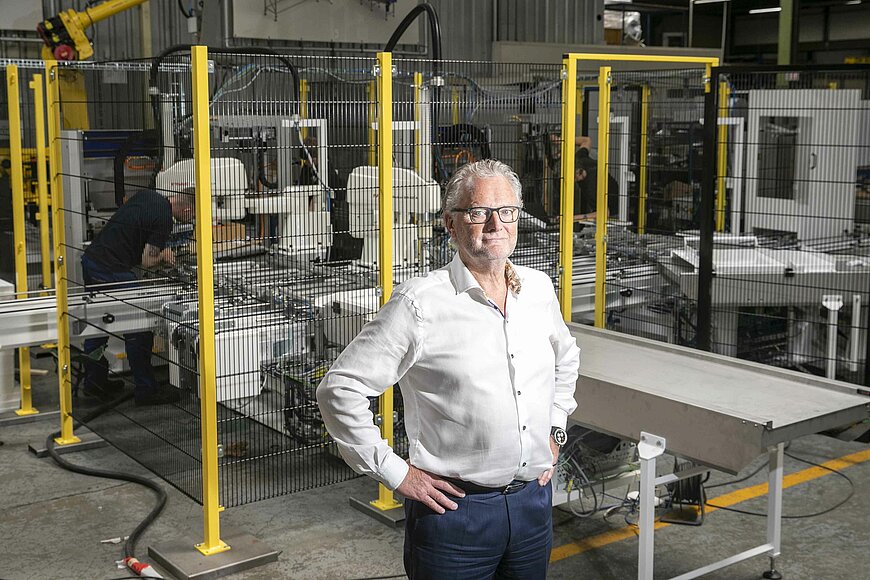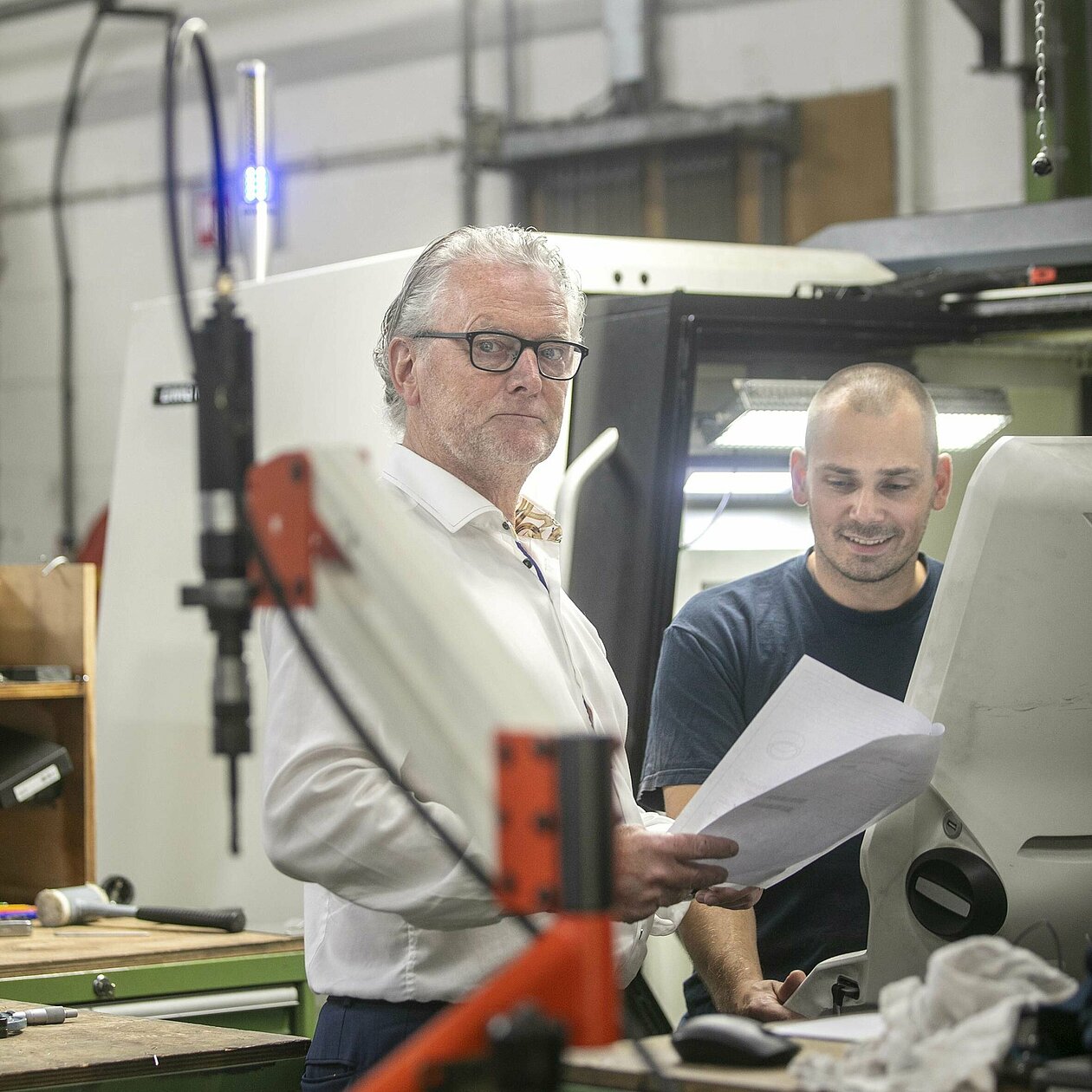Van Wees Waalwijk robotizes production lines in food industry

From forge to high-tech machine factory. That, in a nutshell, is the history of Van Wees Waalwijk. The original family business has moved with the times in its 117 years of existence. Anno 2022 it offers client-specific solutions for automating production processes in the food industry. Because that's the future.
Also for the food industry. "There is still a long way to go to raise this sector to a higher level in terms of automation," says director-owner Andries van der Werf.
In the workshop in Waalwijk are impressive setups of automation systems. Van Wees Waalwijk custom builds them in all shapes and sizes for companies in various sectors. From a cigar drilling machine and a lid mounting machine, to the flan ejection robot and complete packaging and transport lines. No machine goes out the door before it has been extensively tested. With a technical background, Andries knows what he's talking about when he talks about the systems. "But don't ask me to design such a machine myself, I like to leave that to my engineers."
Gallery of Honor
In the hallway leading to his office hangs an honorary gallery of (former) employees, a staff idea. Of the 45 people working at the machine factory, as many as 11 have been employed for more than a quarter of a century. "Next year, three more will join us and I'll be hanging on by a hook myself," Andries said. Still, the average age in the company is not high. There are also employees as young as 30 walking around who have been with the company for twelve and a half years. They came in as BBLs, got a contract and never left. That says something about the company, where the family feeling is still a high priority. "A company is nothing without its staff," says the director.

Innovativeness
What attracted him in 1998 was the diversity of markets the company was already serving at that time, as well as its power of innovation and the fact that every project is customized.
"Back then, mechanical engineering was still fairly in its infancy, it was mainly about overhaul and maintenance. Those are still important, but automation projects have skyrocketed."
As for the food industry, the advent of the cobot is an important development. Series sizes are getting smaller, production runs shorter. This increases the pressure to reduce changeover times, because idle machines produce nothing.
"In the past, long production runs were run because of production efficiency, " said Andries. "Now a different series is produced every twenty minutes. So the machines have to be able to be changed over quickly, which is why flexibility really comes into play now."
Mobile cobot
With the development of the mobile cobot for a bakery, Van Wees Waalwijk took a new step in the world of robotics. The idea for the mobile cobot (the collaborative robot, a robot that works together with people) arose when it turned out that many operations were still done manually that could actually be automated. Andries: "The problem was that these actions took place in several places within the bakery. The solution: don't bring the work to the robot, but the robot to the work." So a mobile cobot, which is multi-deployable and easy to program, takes up little space and does not require a safety cage.
We did not succeed in further commercializing this product in 2015. Through the FoodTech Brainport and AgriFood Capital networks, there is now considerably more interest, including from meal processors and several bakeries, including Mariën Meesterbakkers in Belgium. "For this large bakery, we developed a 2.0 version of the mobile cobot. With a larger industrial robot in a cage, but still mobile," says Van der Werf. The Belgian baker knocked on his door after reading an article about the cobot in a trade magazine. Meanwhile, the machine is operating at four locations in the bakery.
Additional 'employee'
For supporting funding for the development of the cobot, AgriFood Capital helped apply for funds from S3FOOD. This is a European initiative of thirteen cluster organizations - including AgriFood Capital - that assists food makers in digitizing production processes. Van Wees Waalwijk's developed mobile cobot serves several purposes.
"First, the machine takes over heavy and monotonous work from people who often work under unfavorable conditions," Andries explains.
"In addition to less staff wastage, the mobile cobot also increases food safety, reduces food waste and makes companies less dependent on labor shortages. So the cobot as an additional 'employee' offers a lot of benefits."
Medium-sized players
Through S3FOOD, Van der Werf hopes to bring medium-sized players in the agrifood sector in particular into contact with automation and robotization. "Large parties do know how to find their way, smaller companies with artisanal production processes often do not. And there too, heavy monotonous work is done. By having people do the preparatory work and robots do the executive work, companies can scale up production faster, serve more customers and offer even more diversity. That can only benefit the food sector. So there is still a long way to go."
Andries' difference-maker tip
"We all know that there is a shortage in the labor market. So entrepreneurs in the agrifood sector: take care of your employees all the better and improve their working conditions by leaving monotonous and heavy work to a robot. That way they can engage in the more fun and interesting work."